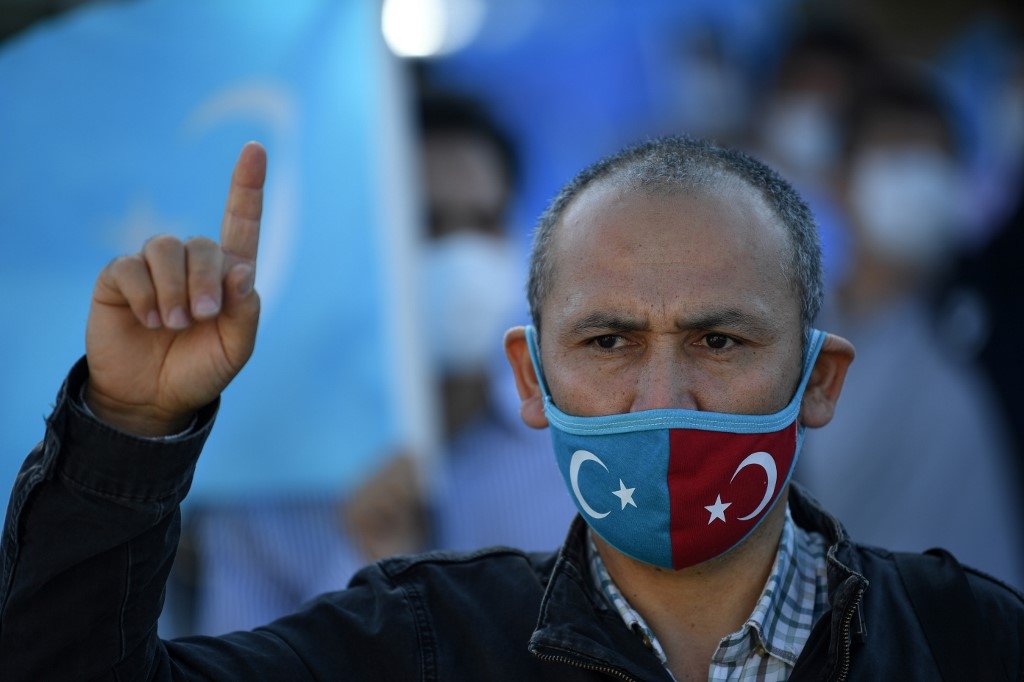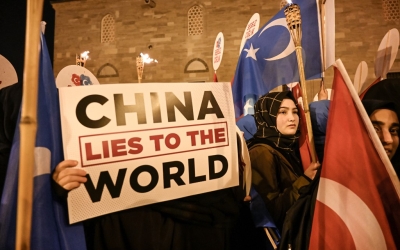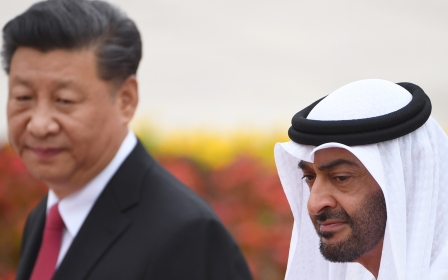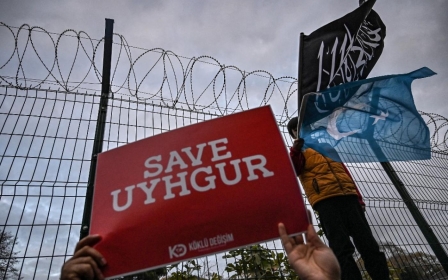Middle East countries deported exiled Uighurs to China: Report

Some Uighur Muslims who fled China and sought refuge in Middle Eastern countries have been arrested and deported, a BBC report has claimed.
BBC's Newsnight said it identified multiple cases of exiled Uighur students and pilgrims being targeted by authorities in Muslim-majority countries - including Saudi Arabia, the United Arab Emirates and Egypt - in collaboration with Beijing.
One Uighur woman told the BBC she had not seen her husband in five years after he was arrested and deported to China while performing the Hajj pilgrimage in Saudi Arabia.
"Our children have become fatherless. We have been left on our own," said the mother-of-five now living in Turkey.
Since 2014, the Chinese government has embarked on a campaign against the Muslim minority group in the country's northwestern province. The region borders Kyrgyzstan, Kazakhstan and Mongolia, and it has been under Chinese control since 1949.
The Uighurs total about 10 million people in their home province - a number that is increasingly being outnumbered by ethnic Han Chinese who have settled in the region.
At least one million Uighurs are said to be held in internment camps where they are undergoing political "re-education," while the region itself is under intense and intrusive surveillance.
Abduweli Ayup, a Uighur activist and human rights advocate who has documented the pattern of Uighur persecution in the Middle East, told the BBC he identified five Uighurs deported to China by Saudi authorities. "Among them, I know three," he said.
Ayup also found that Chinese authorities had pressured the families of exiled Uighurs to convince their loved ones to return home, only to end up imprisoned.
Even Turkey - historically seen as a safe haven for Uighurs, with thousands living in cities across the country - has been accused of deporting members of the Turkic minority into the hands of Chinese authorities. Ankara has denied these allegations.
China denies claims
Last year, leaked documents known as the China cables disclosed Beijing's efforts to shut down Uighur travel and target Uighurs abroad.
According to reports, at China's request Egypt deported at least 12 Uighur students studying at Al-Azhar University, a well-known institution for religious studies, and detained dozens more.
In early 2018, Uighurs living abroad reported that security bureaus in Xinjiang were systematically collecting detailed personal information about them from relatives still living there.
China was also accused of subjecting Uighur detainees to torture, indoctrination and forced labour, as well as forcibly sterilising women.
The Chinese embassy in the UK told the BBC that the claims are "based on fabricated rumours" and reiterated Beijing's denial of the re-education camps in Xinjiang.
President Xi Xinping recently said that the Communist Party's strategy in the region was "totally correct" and that "it must be held to for the long term".
Meanwhile, the Saudi embassy to the UK told the news agency that the kingdom "fully complies with international norms and Saudi law when cooperating with other countries on issues such as deportation".
Saudi Arabia has previously come under fire after Crown Prince Mohammed bin Salman defended China's crackdown on Uighur Muslims.
China is the Gulf kingdom's biggest trading partner, with Saudi imports from China totalling about $46bn in 2018. In June, China imported more oil from Saudi Arabia than any other country.
Middle East Eye propose une couverture et une analyse indépendantes et incomparables du Moyen-Orient, de l’Afrique du Nord et d’autres régions du monde. Pour en savoir plus sur la reprise de ce contenu et les frais qui s’appliquent, veuillez remplir ce formulaire [en anglais]. Pour en savoir plus sur MEE, cliquez ici [en anglais].





